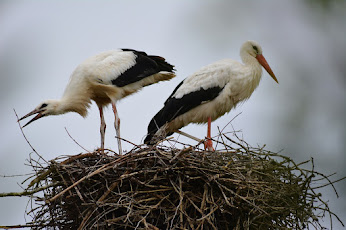How dogs are helping to rewild an urban nature reserve by acting like wolves!
In a ‘first of its kind’ project for the UK, Wilderlife and the Railway Land Wildlife Trust have been asking local dogs and their owners in the town of Lewes to ‘act like wolves’ to help reseed native wildflowers at the Railwayland nature reserve.
Before wolves were persecuted to extinction in the UK around 1760, they roamed large areas, typically covering 20km or more each night. As they did so they carried wildflower and grass seeds in their fur, often depositing them many miles away to establish new colonies of plants.
Now, in a unique project, local dog walkers have been asked by staff at the Railway Land Wildlife Trust in Lewes to ‘walk in the shadow of wolves’. Walkers on the nature reserve have been picking up specially designed dog backpacks which they attach to their dogs. As the dogs walk through carefully selected areas of the reserve the holes in the packs allow seeds to be deposited randomly. Because the dogs cover more ground than people and visit areas that are hard to reach, the wildflower seeds are spread more widely across the landscape and germination is likely to be more effective.
Said Project Manager Dylan Walker: “This has been such a joyous experience. Local dog walkers have been so helpful and positive about the project. They’ve helped to protect and enhance our nature reserve. Dog walkers often get bad press when walking in the countryside so we’re so pleased to tell a story in which dogs and their owners are the stars!”
Said dog owner Cressida Murray: “I signed up for the project because it sounded like such a good fit. I was asked to place a harness on my chocolate Cocker Spaniel called Bertie and he ran around spreading seeds like wolves used to do many years ago. It’s such a great project to involve our local community and I thoroughly enjoyed being part of it.”
The project has been funded by Ouse Valley Climate Action and trialled on a small area of degraded woodland which previously had no ground vegetation. Following the success of the trial, it is hoped that it can be rolled out more widely next year.

.jpg)

Comments
Post a Comment